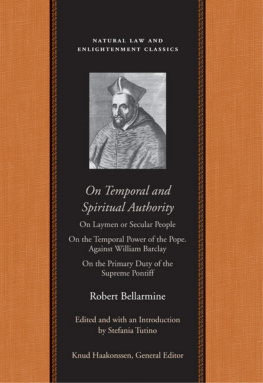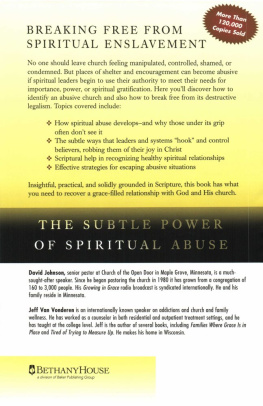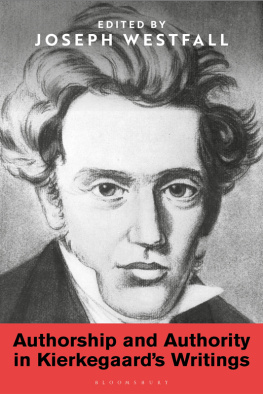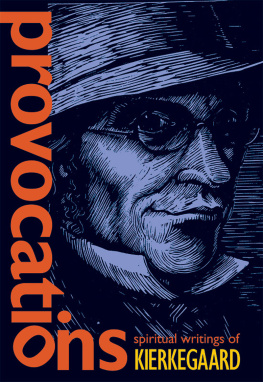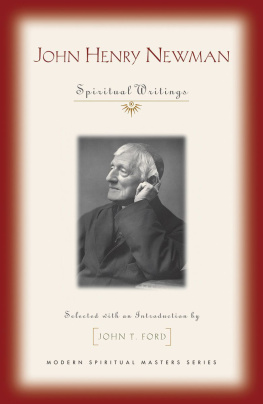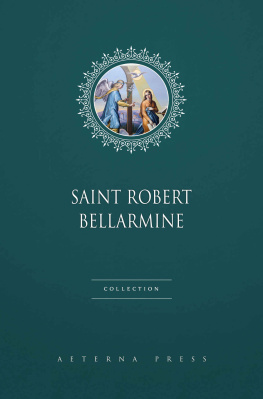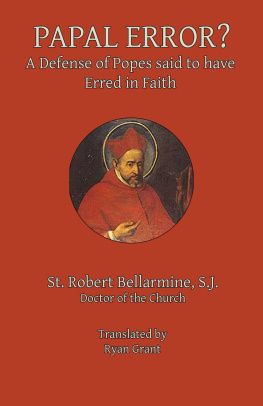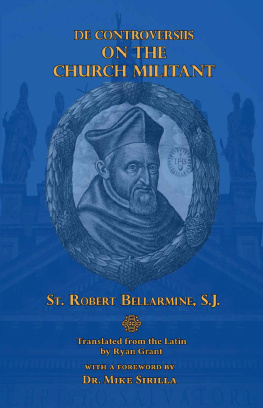Bellarmine - Writings on Temporal and Spiritual Authority
Here you can read online Bellarmine - Writings on Temporal and Spiritual Authority full text of the book (entire story) in english for free. Download pdf and epub, get meaning, cover and reviews about this ebook. year: 2012, publisher: Liberty Fund Inc., genre: Religion. Description of the work, (preface) as well as reviews are available. Best literature library LitArk.com created for fans of good reading and offers a wide selection of genres:
Romance novel
Science fiction
Adventure
Detective
Science
History
Home and family
Prose
Art
Politics
Computer
Non-fiction
Religion
Business
Children
Humor
Choose a favorite category and find really read worthwhile books. Enjoy immersion in the world of imagination, feel the emotions of the characters or learn something new for yourself, make an fascinating discovery.
- Book:Writings on Temporal and Spiritual Authority
- Author:
- Publisher:Liberty Fund Inc.
- Genre:
- Year:2012
- Rating:3 / 5
- Favourites:Add to favourites
- Your mark:
- 60
- 1
- 2
- 3
- 4
- 5
Writings on Temporal and Spiritual Authority: summary, description and annotation
We offer to read an annotation, description, summary or preface (depends on what the author of the book "Writings on Temporal and Spiritual Authority" wrote himself). If you haven't found the necessary information about the book — write in the comments, we will try to find it.
Writings on Temporal and Spiritual Authority — read online for free the complete book (whole text) full work
Below is the text of the book, divided by pages. System saving the place of the last page read, allows you to conveniently read the book "Writings on Temporal and Spiritual Authority" online for free, without having to search again every time where you left off. Put a bookmark, and you can go to the page where you finished reading at any time.
Font size:
Interval:
Bookmark:

This book is published by Liberty Fund, Inc., a foundation established to encourage study of the ideal of a society of free and responsible individuals.

The cuneiform inscription that serves as our logo and as a design element in Liberty Fund books is the earliest-known written appearance of the word freedom (amagi), or liberty. It is taken from a clay document written about 2300 B.C. in the Sumerian city-state of Lagash.
2012 by Liberty Fund, Inc.
Cover art: Portrait of St. Robert Bellarmine. Anonymous, first half of the seventeenth century. Rome, Chiesa di SantIgnazio.
This eBook edition published in 2013.
eBook ISBNs:
Kindle 978-1-61487-636-6
E-PUB 978-1-61487-244-3
www.libertyfund.org
Robert Bellarmine was one of the most influential theologians and political theorists in post-Reformation Europe.
Bellarmines intellectual efforts gained him a more central position within the Roman Curia but he also encountered dangerous setbacks. In 1587 he became a member of the Congregation of the Index and in 1598
After the death of Sixtus, Bellarmines star rose higher and higher, especially during the pontificate of Clement VIII. In 1599 he was appointed cardinal and soon after became one of the popes main advisers on the so-called controversy de auxiliis. This most delicate controversy of the early modern Catholic Church began in 1588 with the publication of the Spanish Jesuit Luis de Molinas Concordia liberi arbitrii cum gratiae donis [The Concordance of Free Will with the Gifts of Grace], considered by many theologians, and especially Dominicans, to have a Pelagian flavor. His relationship with Clement VIII was not smooth, however, and certain implications of Bellarmines political theory put him at odds with the pope, as the third text of this selection shows.
The beginning of the seventeenth century marked a shift in Bellarmines intellectual interests from theory to political dynamics. The cardinal was increasingly engaged in some of the most important political controversies, all linked to his theological views. Bellarmine contributed to the controversy of the Republic of Venice versus the Roman See. This concerned the Interdetto, that is, excommunication ordered by Pope Paul V in 1606 against Venice as an act of retaliation for a series of laws issued in 1604-5. Those laws attacked clerical exemption from civil jurisdiction by claiming that two clergymen guilty of secular crimes should be put on trial in a civil tribunal and forbade churches from being built and ecclesiastical properties from being alienated without the Venetian Senates approval. Aside from the specific legislative measures, the issue at stake was the extent of the jurisdictions of the secular state of Venice and of the Roman See.
The authors who wrote in defense of Venice, especially Paolo Sarpi, who was probably the most effective supporter of the cause of the Republic, often mentioned Bellarmine as an author whose doctrine would indeed support the Venetian laws, as it was Bellarmine who, after all, had written against the direct power of the pope in temporal affairs. The Jesuit cardinal responded in a number of pamphlets defending his own doctrine, for example Risposta di Bellarmino alle opposizioni di F. Paolo Sarpi Servita and Risposta del Card. Bellarmino al Trattato delli sette theologi di Venezia (both Rome, 1606).
Another noteworthy element in this controversy is that Bellarmines position again caused problems in Rome, where some theologians thought it more effective to reply to the Venetian controversy not by stressing the Indeed, in 1607 Bellarmine decided to publish a revision of his own published works in order to clarify certain points of his doctrine, including the exemption of the clergy, which he thought had been misinterpreted by people like Sarpi and used against the Roman See.
In those years another political controversy involved Bellarmines doctrine of the indirecta potestas even more profoundly, namely the debate over the Oath of Allegiance, promulgated by James VI and I in 1606 after the Gunpowder Plot. The oath was offered to the kings Catholic subjects to test their loyalty in temporal matters, but it also laid a heavy mortgage on the profession of their faith, namely to renounce as impious and heretical the Catholic doctrine that the pope could depose a heretical sovereign and absolve his subjects from their duties of obedience. This mixture of a declaration of political loyalty with a theological statement rejecting the popes power in temporal matters was intended to extend Jamess temporal jurisdiction over his Catholic subjects a little beyond simple political obedience. This struck at the heart of Bellarmines doctrine, which was introduced precisely to extend the popes spiritual jurisdiction beyond simple spiritual authority, and indirectly into political matters. Bellarmine published numerous responses to James, Lancelot Andrewes, and William Barclay: his work against the last of these is the second and major text of this selection. Once again, his intervention caused much controversy in both the Protestant and the Catholic worlds, as we will see.
By the second half of the 1610s it was clear that the doctrine of Bellarmine, perhaps the most visible theologian in Rome, was becoming very problematic. On the one hand, many considered it the ultimate bulwark of papal authority in temporal matters, affecting not only Protestant monarchies like England, but also, and more dangerously from the point of Bellarmine also maintained his impressive scholarly production.
In 1621 Bellarmine participated in the conclave that elected Gregory XV. However, his health was rapidly deteriorating, and in September of that year the cardinal died. Bellarmine was not canonized until 1931, although attempts at canonization started as early as 1627 and were reproposed throughout the seventeenth, eighteenth, and nineteenth centuries. This long delay reflects both the complexity of Bellarmines views and the complexity of the context in which they were discussed.
The first text in this edition is one of the Controversiae, On Laymen, part of the Controversia de Ecclesia militante, On the Militant Church, that is, the Church on earth. This work has three parts: on laymen, on the clergy, and on monks. It was part of the first volume of the Controversiae, the one that Sixtus V wanted to include in the Index.
The controversy on laymen presents a crucial theoretical basis for Bellarmines theory of the potestas indirecta. His arguments supporting the indirect power of the pope in temporal matters were a theoretical and historical response to the growing strength of both the Protestant territorial churches and the early modern states. They hinge on two ideas. The first is that political government is firmly grounded in natural and divine law and thus to an extent autonomous with respect to the Catholic Church. In other words, the political authority of sovereigns of the pre-Christian and non-Christian world was as legitimate as that of Christian princes. If this were not the case and if the Christian commonwealth were identical with the political commonwealth, the pope would have direct control not only over the souls but also over the bodies of Christians, who would be both political subjects and members of the Church of Rome.
The second key idea is that political government is not completely separate from the Christian Church: there is a point where the temporal and the spiritual spheres merge. That point is humanitys ultimate end, the attainment of eternal life. This is a spiritual matter entrusted to the pope for the sake of which the temporal sovereign of a Christian realm must obey the pope as a superior, since in this respect the sovereign needs the spiritual counsel of the pope, just as his subjects do. Otherwise, temporal and spiritual authority would be completely separate and the pope would have no authority at all over Christian princes in temporal matters.
Font size:
Interval:
Bookmark:
Similar books «Writings on Temporal and Spiritual Authority»
Look at similar books to Writings on Temporal and Spiritual Authority. We have selected literature similar in name and meaning in the hope of providing readers with more options to find new, interesting, not yet read works.
Discussion, reviews of the book Writings on Temporal and Spiritual Authority and just readers' own opinions. Leave your comments, write what you think about the work, its meaning or the main characters. Specify what exactly you liked and what you didn't like, and why you think so.

